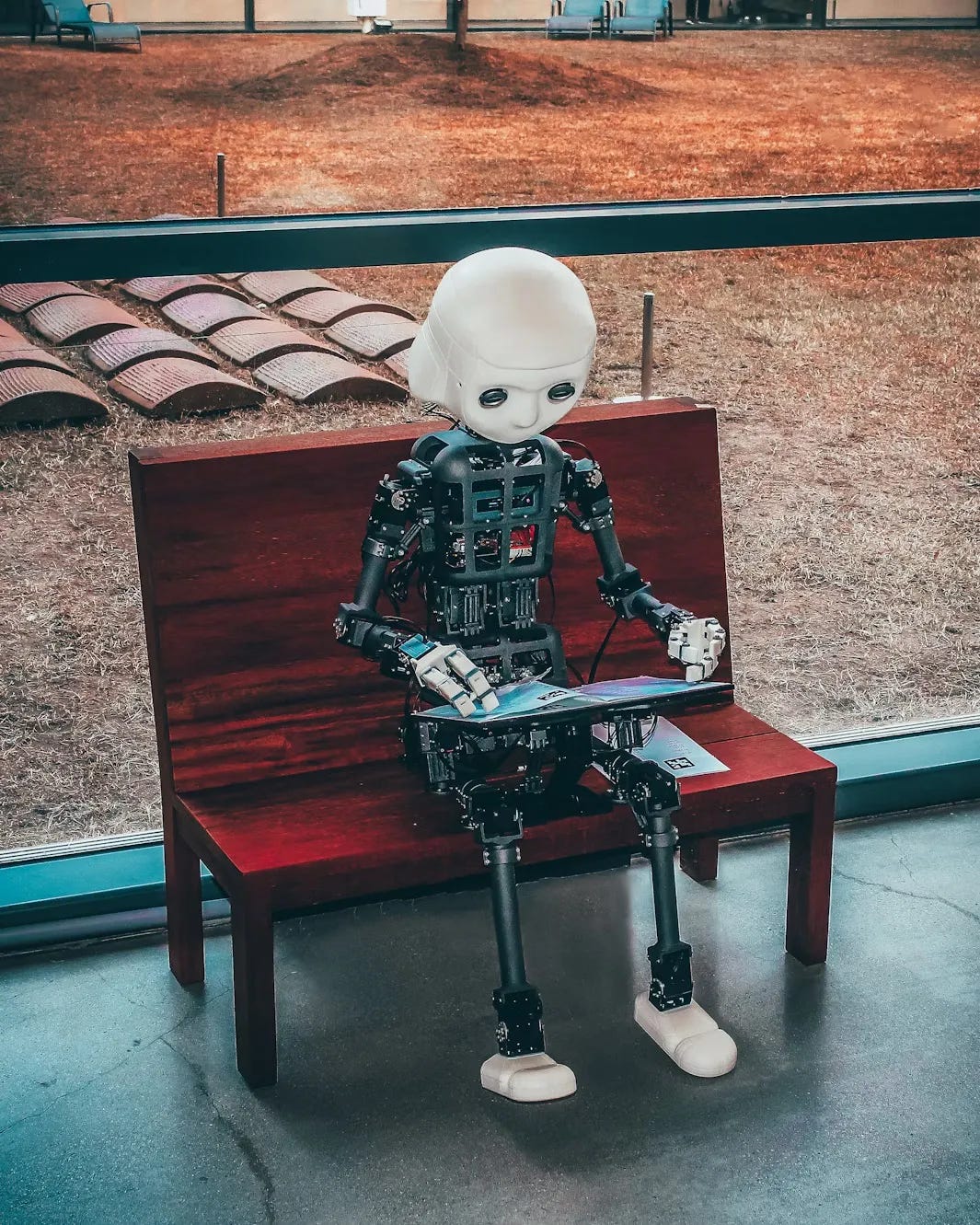How to AI-proof your writing
Be real like bots aren’t.
This is a work in progress, which means there’s a lot of work and not all that much progress. And much of the time you may feel like we’re losing ground to the robots.
But!
I’ve been writing and publishing since the 1990s, and I’ve so far survived the rise of the internet, Y2K, the slow death of newspapers and all manner of in-between fake-news and real-news crises. Like the Harper years, Ross Perot and two Trump terms. I’m disaster-hardened.
Generative AI is next-level mayhem for creative professionals, not gonna try and sugarcoat that part. If you are in the business of populating websites with bland copy, or coming up with clever ads for a political candidate, or a TV spot for Nike, your employed days are counted. SEO specialists? Not especially needed anymore. Even translators are threatened, unless they work in a specialized field. And that’s only temporary. Anything and everything that can be done quicker and cheaper by a machine will get done by the machine.
I had a chat this morning with a very smart and experienced marketing expert who said what he hears in the space is that web traffic is down given that search queries now return contextualized results generated by AI that are pretty comprehensive. You no longer need to click to get the gist of the answer to your query. It’s right there at the top of the results page. Sure, sometimes it’s wrong. But most people don’t realize that.
We can spend hours decrying the incredible intellectual paucity of robots, and honestly that sounds like a great deal of fun, but it’s not the most practical thing we can do. Instead of sitting here bitching, we should get busy improving our skills and becoming experts in work that can’t be done quicker or cheaper (or at all) by a machine.
Like the movie said, you have a choice. You can get busy living, or get busy dying.
I am only interested in the first option.
As my marketing friend was talking my mind went to my own stats on the various platforms where my writing lives.
“I’m not seeing a decline there at all, I said, quite the opposite.”
We pondered for a few minutes. It was all the time we needed to understand why.
My writing is idiosyncratic and I am already someone who’s known for having these idiosyncratic views. I am one-of-a-kind. Not that I’m alone in that — far from it. But I’m one-of-a-kind that an existing pool of readers already knows about.
You, too, can do that if you do consistent work and carefully develop your voice. The thing that makes you unique. Nobody is going to flock to a random website to get a generic opinion on where to go to get lug nuts tightened near Watertown, New York. But the readers who know and like my voice will enjoy reading about the quaint and charming garage I encounteredthere on my way to an exciting weekend in State College.
You can also focus on telling stories that resonate with actual human beings. This should set you apart from AI, which is excellent at summarizing a three-hour webinar but absolute shit at writing characters you’d want to spent five minutes with. Tell the wonderful stories of the beautiful people you meet. Or the horrible story of the psychopaths you’ve interviewed. Tell real stories of real people that have emotions and character development and morals and such.
Those are two easy ways to distinguish your writing from that of a machine. Basically it comes down to being relatable and able to convey emotions that don’t feel foreign to other humans. Something machines are not (yet) able to do.


